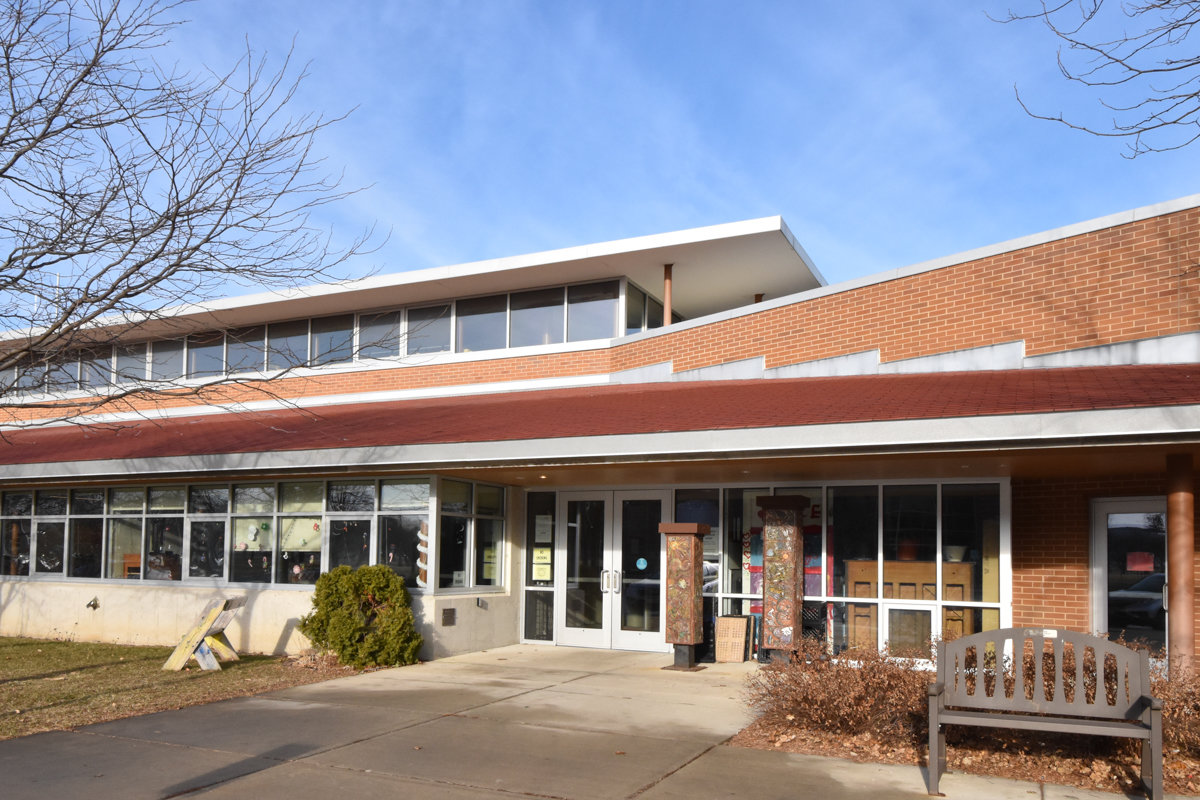Nonprofit Spotlight: Lussier Community Education Center
Posted by Samantha Haas on Tuesday, February 4th, 2020 at 1:19pm.
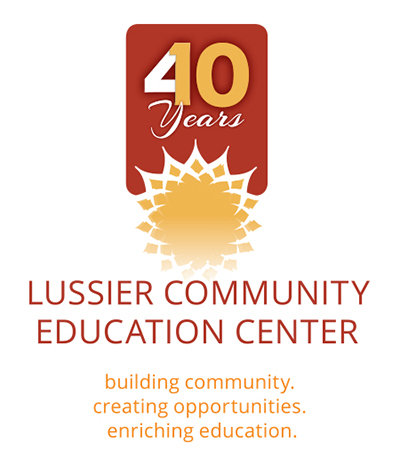 COVID-19 Updates
COVID-19 Updates
The Lussier Community Education Center’s operations are continuing in their new form through summer. Its mission is still to be a place for people from different walks of life to come together, share gifts, and build community. That typically includes enrichment activities for all ages, games, art, tutoring, hot meals, a food pantry, farmers market, job clinic, radio shows, activism opportunities, and more. During these times, LCEC is practicing social distancing and social solidarity by continuing its food pantry program and K-12 summer camps in a modified way.
- (6/29/2020): Modified K-12 summer camps got underway today, and the Support and Solidarity Network continues to connect with neighbors and mobilize to meet specific needs.
- (3/31/2020): LCEC added bins and in-kind gift forms outside the Center for those who want to donate “wish list” items.
- (3/27/2020): LCEC received a COVID-19 relief grant to make sure food keeps moving to families in these challenging times. The Center is already using the grant to replace single-use cardboard boxes with reusable (and safely disinfect-able) 18-gallon totes for its emergency food deliveries.
- (3/25/2020): LCEC shared an update in its e-newsletter about how essential activity continues.
- (3/24/2020): LCEC staff have been using a van to deliver breakfast and lunch from the school district to kids in the neighborhood.
-
(3/21/2020): Another way to help is to pledge the check (that the federal government plans to give everyone as part of their response to COVID-19) to a family at LCEC here. You can read how LCEC Executive Director Paul Terranova came up with the idea here.
-
(3/18/2020): The Lussier Food Pantry, 55 S Gammon Rd, remains open from 7-8 p.m. Wednesday and 12-1 p.m. Saturday. Shoppers are asked to stay outside while selecting items from a shopping list, and volunteers and staff will pack boxes/bags and bring them to the front of the building. You can view a wish list here.
-
(3/13/2020): If you want to be included on the list of people the LCEC calls on as it learns of new needs and opportunities, email help@LCECmadison.org or leave a message at 608-833-4979 x224. To support LCEC financially, please use this link.
-
(3/13/2020): LCEC Executive Director Paul Terranova writes, “One other idea for helping. Every year we count on our elders to keep the elections running and the polls open. This year we shouldn't leave it to them. If you and those you are in daily contact with don't tick the boxes for any of the risk factors associated with coronavirus, consider applying to be a poll worker on the City of Madison Clerk website.
-
(3/13/2020): LCEC is working to identify other needs and the resources to address them safely, as well as taking the following steps to support those most vulnerable to the disease. After-school programs will be open when the schools are open and will close when schools close. Food programs will be restructured to provide needed food to families while minimizing person-to-person contact. All other programs and events are suspended and the LCEC is closed until May 1 (or until it is advisable to reopen). Staff are working remotely and will be paid.
Nonprofit Spotlight
Madison is home to a collaborative network of over 15 community centers of varying sizes and offerings, most notably afterschool and summer programming. Among them is the longest-running center on the west side, now known as the Lussier Community Education Center (LCEC), which a group of mostly women started in the late 1970s at the Wexford Ridge Apartments. A swingset didn’t even exist for the almost 250 families living in the neighborhood at that time, so over the years this dedicated group formed connections to get a donation of playground equipment, access to two of the apartments for community programming, and eventually some paid staff.
In 2000 when Paul Terranova was hired as the Center’s executive director, he heard about the founders’ vision of building a “real center” and found that a third of the people coming to the Center were from outside the neighborhood. Together with neighbors and supporters from around the community, the Center launched a massive grassroots campaign for a new Center for the whole west side. The doors to the LCEC opened in 2008 on the other side of Gammon Road next to Thomas Jefferson Middle School and James Madison Memorial High School and just down the hill from John Muir Elementary School, enhancing the partnership between the Center and school district.
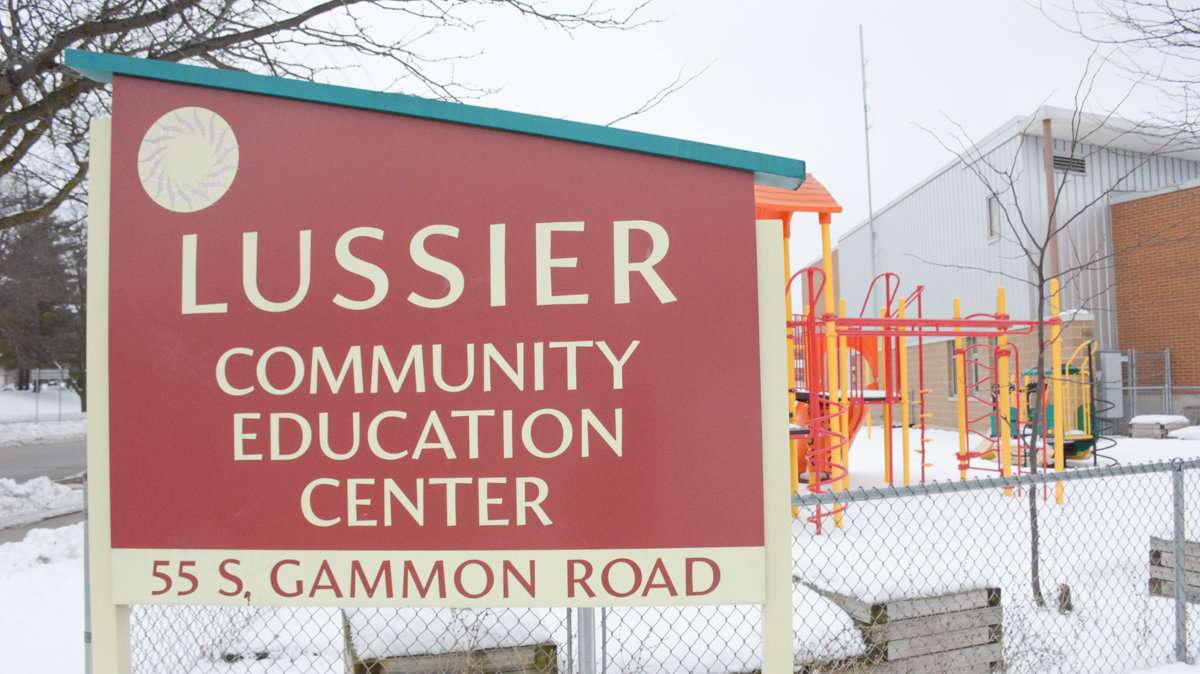
Terranova described the Center as a “vehicle for the community to take care of itself” and “place for people to share their gifts with the community,” because “everyone has something to offer and needs to be met.” At LCEC, that relationship takes many forms, including enrichment activities for all ages, games, art, tutoring, hot meals, a food pantry, farmers market, job clinic, radio shows, activism opportunities, and so much more. During a recent visit, for example, the second- through fifth-graders were enjoying an afternoon snack in their two respective rooms, some of the middle and high schoolers were playing basketball in the half court gym, volunteers were preparing supper in the commercial kitchen next door, and other community members were popping by to use the computer lab.
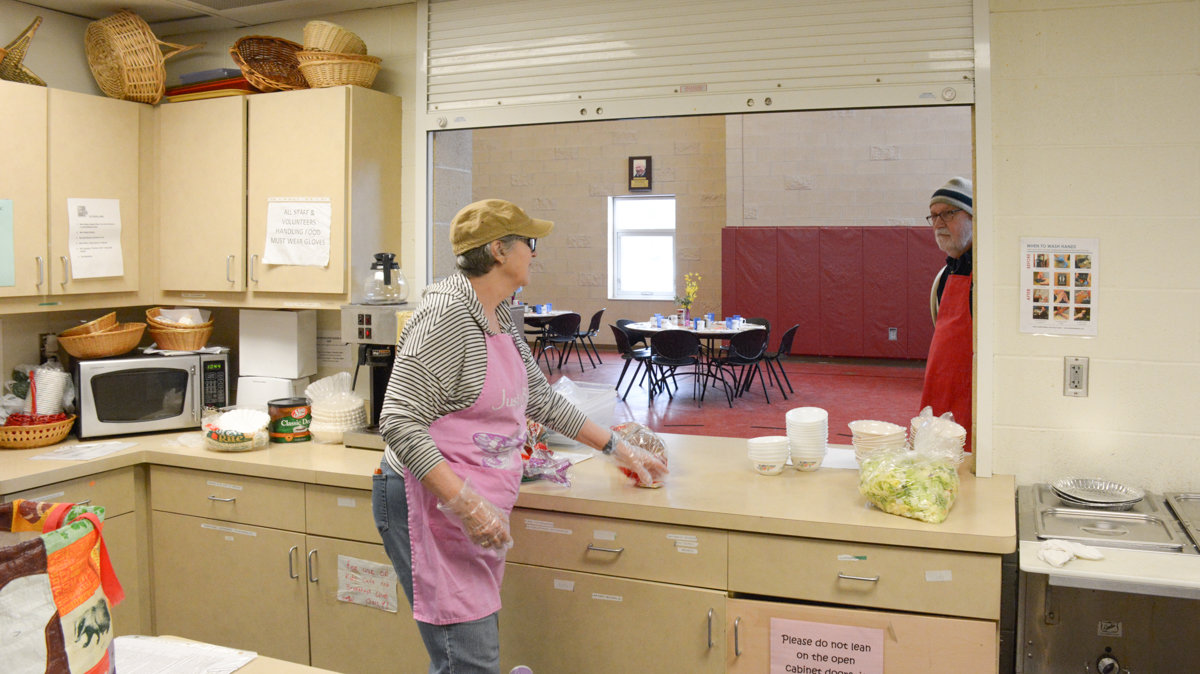
The largest part of LCEC’s budget goes into the K-12 out-of-school programs, which have four focus areas: academics and learning, health and fitness, community service and leadership, and arts and creativity. They are all free programs for low-income children that run each day after school until 5:30 p.m. and eight weeks during the summer from 9 a.m. to 4 p.m. With the addition of the nearby Tree Lane Family Apartments, LCEC expanded its elementary program from about 35 to 62 kids this year. Because of this recent growth, the Center added a classroom offsite, such as at the elementary school, but there is still a long waiting list of kids.
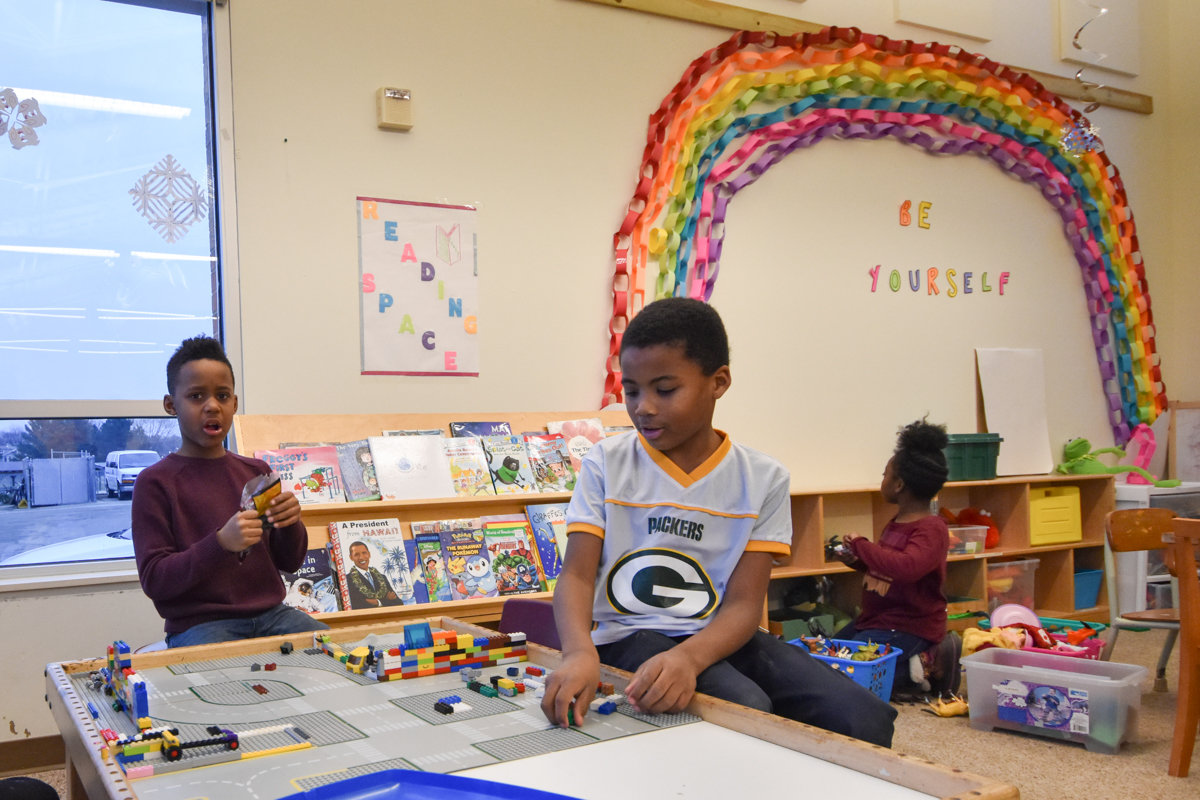
Q/A with LCEC
We spoke with Paul Terranova, who in June 2020 will mark 20 years as Executive Director of the Lussier Community Education Center, to learn more about the programs and relationship between the Center and community.
What sorts of activities does LCEC offer kids after school and during the summer?
In our elementary program, for example, we partner with about 20 different organizations to make sure kids have the opportunity to try all kinds of things and find what they get passionate about. This includes working with the Arboretum and Rutabaga Paddle for outdoors stuff, Madison Christian Community for a garden program, UW athletes as pen pals, and Wisconsin Chamber Orchestra, UW-Madison Dance Department, Children’s Theater of Madison, and Madison Youth Choirs for the arts. For the last three years as part of our summer camp, we also send girls ages 8-18 to Girls Rock Camp, where they can go to camp not knowing how to play any instrument, and by the end of the week they’re in a band and playing a song. The idea is that for lots of kids from privileged families, their families send them to their horseback riding camp or robotics camp or soccer camp or all the different sorts of activities that are fee-based activities that they have the resources to do. There are lots of families in our community that don’t have the resources to pay for those things, and we try to make sure that the kids who come here have a really rich and wide variety of opportunities.
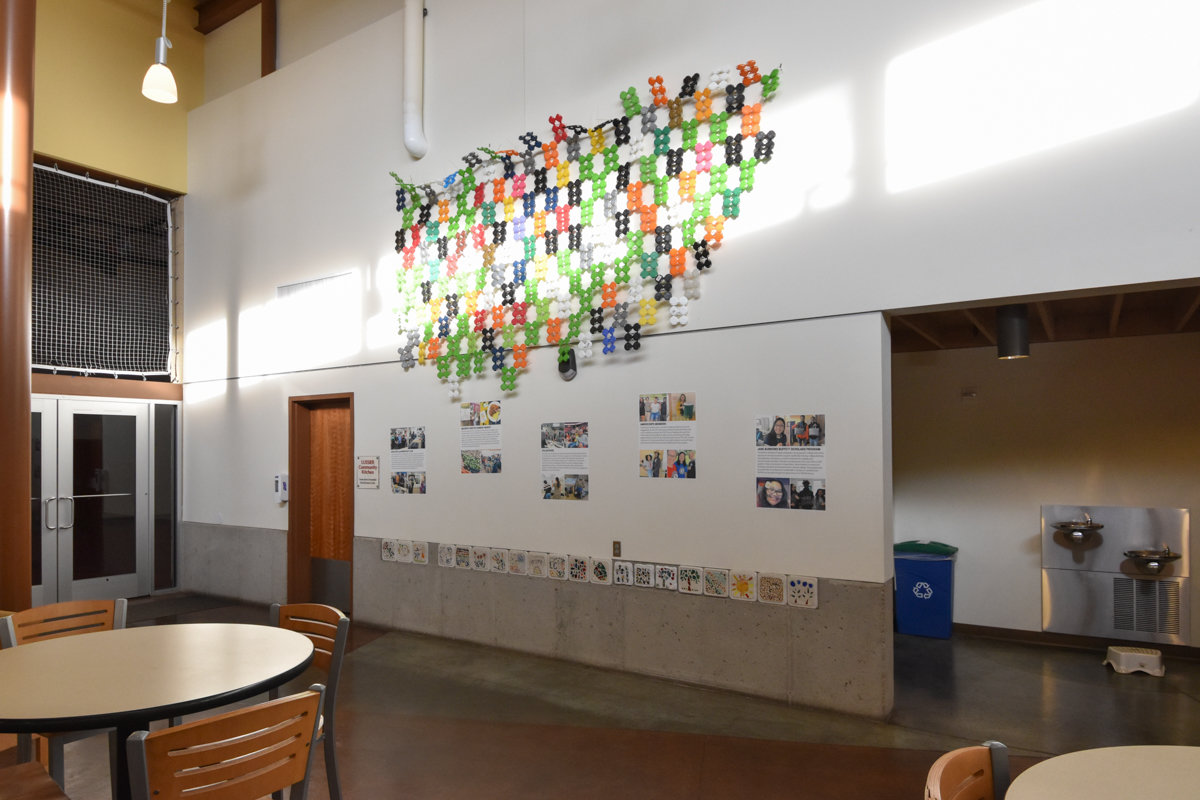
Who can attend afterschool and summer programming through LCEC?
It used to be first-come first-serve at the beginning of the school year or summer. But we were looking at a lot of the research about impact on kids’ lives, and it seems like once you have quality programming there are two things that have a lot of impact: one is dosage (how many times a week are kids coming) and the other is the kind and length of relationships that you have. We’ve always built long-term relationships; some of the kids that I knew as young kids when I started are actually working here, and then we have some who are now parents of kids in our programs. These relationships with kids, families, parents, and grandparents have been really important and we think one of the more powerful things. So basically we’ve set it up now so kids who are in the program have first priority, their siblings next, and then new kids. And within that there’s set aside for new kids living at Tree Lane Family Apartments.
Beyond afterschool and summer programs, every winter we run our holiday gifts program, where families identify a gift valued at about $30 that their kids would like (gifts for ages 12 and under, and gift cards for 13-18 year olds). Then partners, including individuals, families, and businesses, sign up to purchase gifts for a certain number of people. Every year we talk about limiting the numbers to about 350 kids because it is such a huge undertaking, and in 2019 we got gifts to about 725 kids (which included about 100 new kids from Tree Lane), which is amazing. That holiday gifts program and the school supplies are the only programs we have with a geographical restriction by zip code. Nothing else we do has that -- people can come from anywhere to the Center, and the food pantry is a good example of that. For folks who are in some kind of chronic food insecurity, all the food pantries have limits, and so we may have folks who have maxed out their limits in all other food pantries nearby and are coming here, and we don’t have any restriction on that.
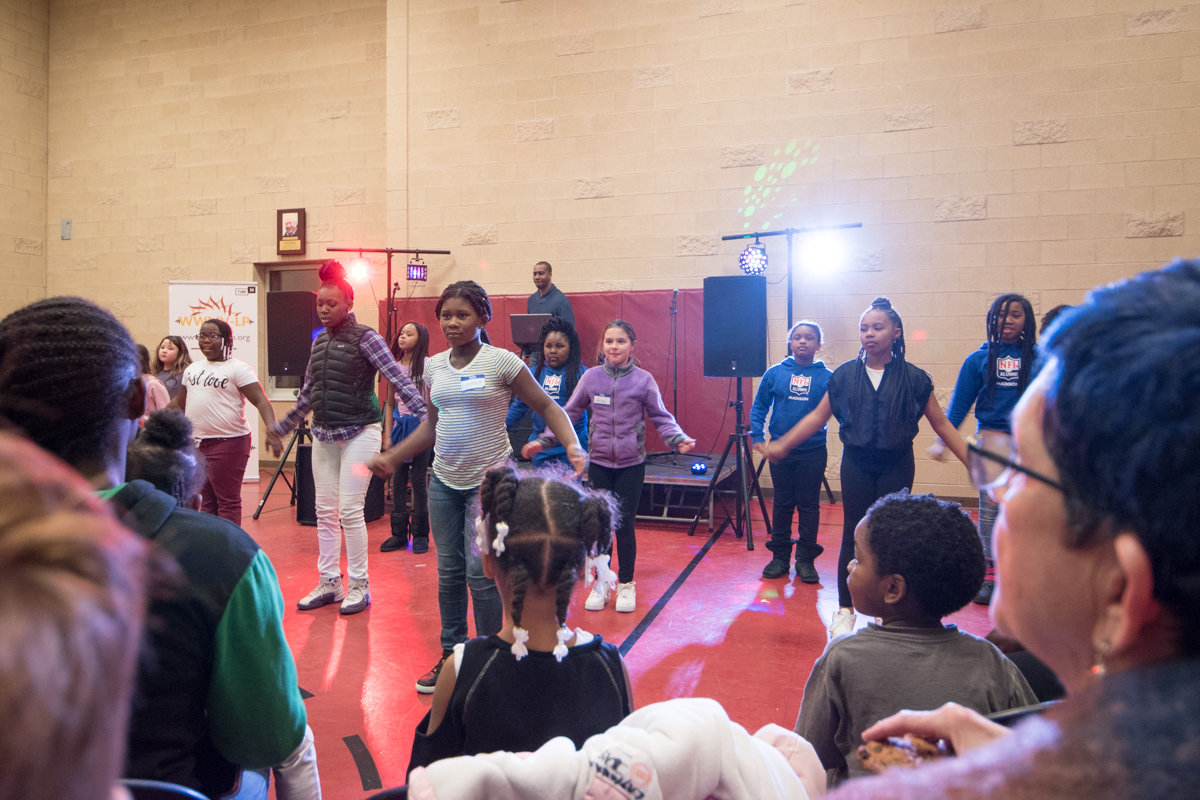
How often can people use the food pantry at the Center?
Our limit is 14 times a year, and we are open Wednesday evenings and Saturdays for an hour. Over the years we’ve built more capacity to get more food out, because when we moved here it was 8 times a year. This was one of the original programs in about 1980 that folks started at the Wexford center. Now we have a staff person who supports the volunteers, and there are three backbone volunteers that do most of the work, probably 15-20 hours per week each, and then volunteer groups who come in and serve about once a month. We have done a lot of work getting more partners from UW, so nutritionists come in and help us with moving healthier foods to the front and getting recipes. We also get food from Willy St. Co-op, Whole Foods, and The Emergency Food Assistance Program (TEFAP), as well as food drives and financial donations to purchase food at Second Harvest and elsewhere.
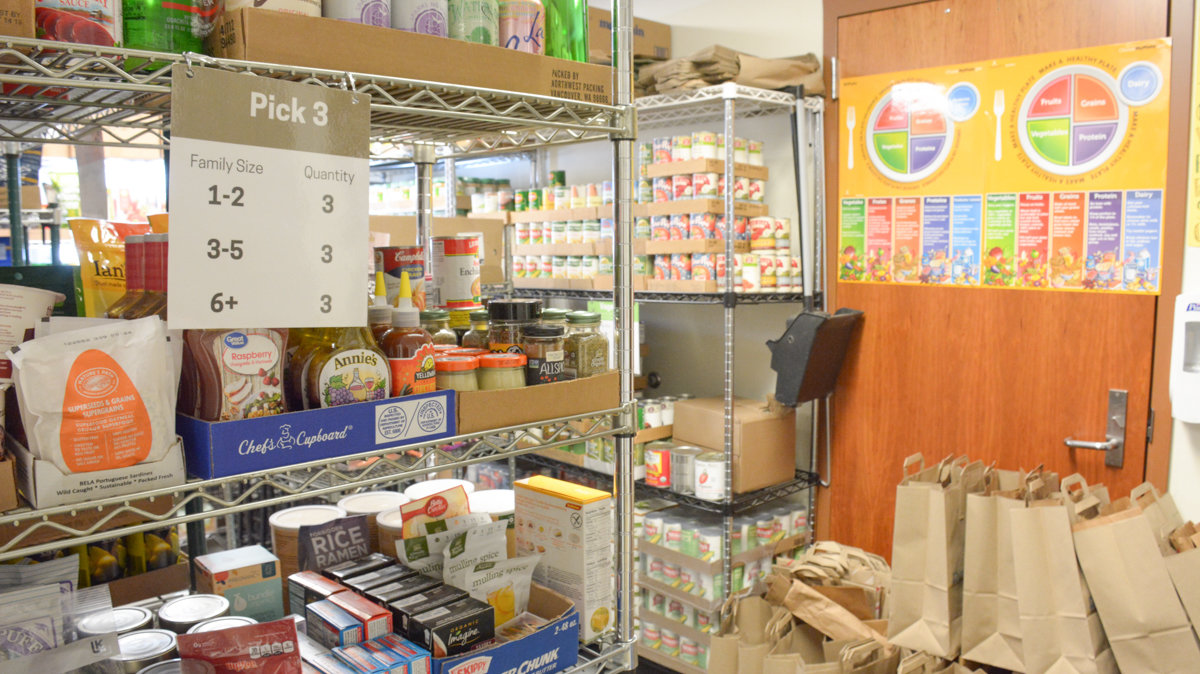
When kids aren’t playing basketball or when seniors aren’t doing yoga, what is the half-court gym used for?
That is where many community meetings are held and meals are served for after school and in the summer for kids as well as for lunch each Friday for seniors. Saturdays during the winter that’s where the MadWest Winter Farmers’ Market vendors set up.
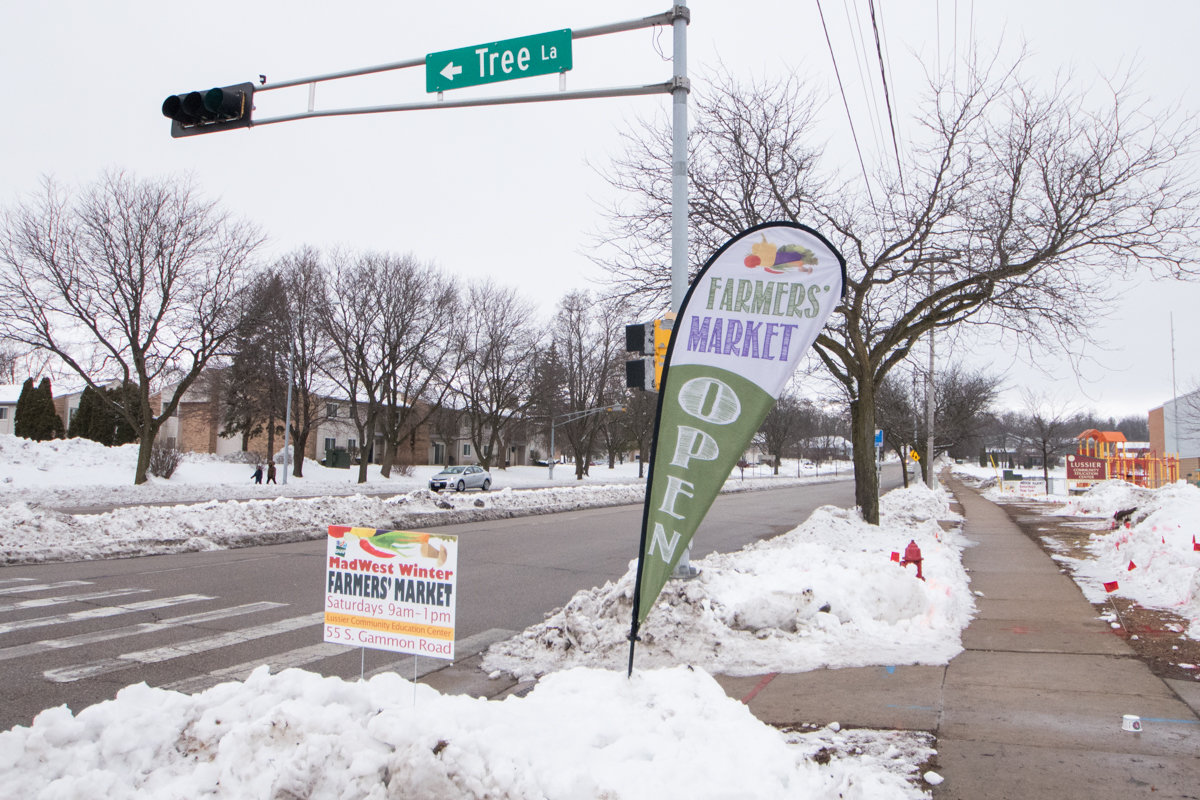
And once a month we have a community dinner for people to come together. We have lots of different people from lots of different walks of life who are using the Center who are mainly just passing by each other, and we figured out that if we could put a few thousand dollars into our budget and just do a free dinner. Slowly over the years we’ve developed themes.
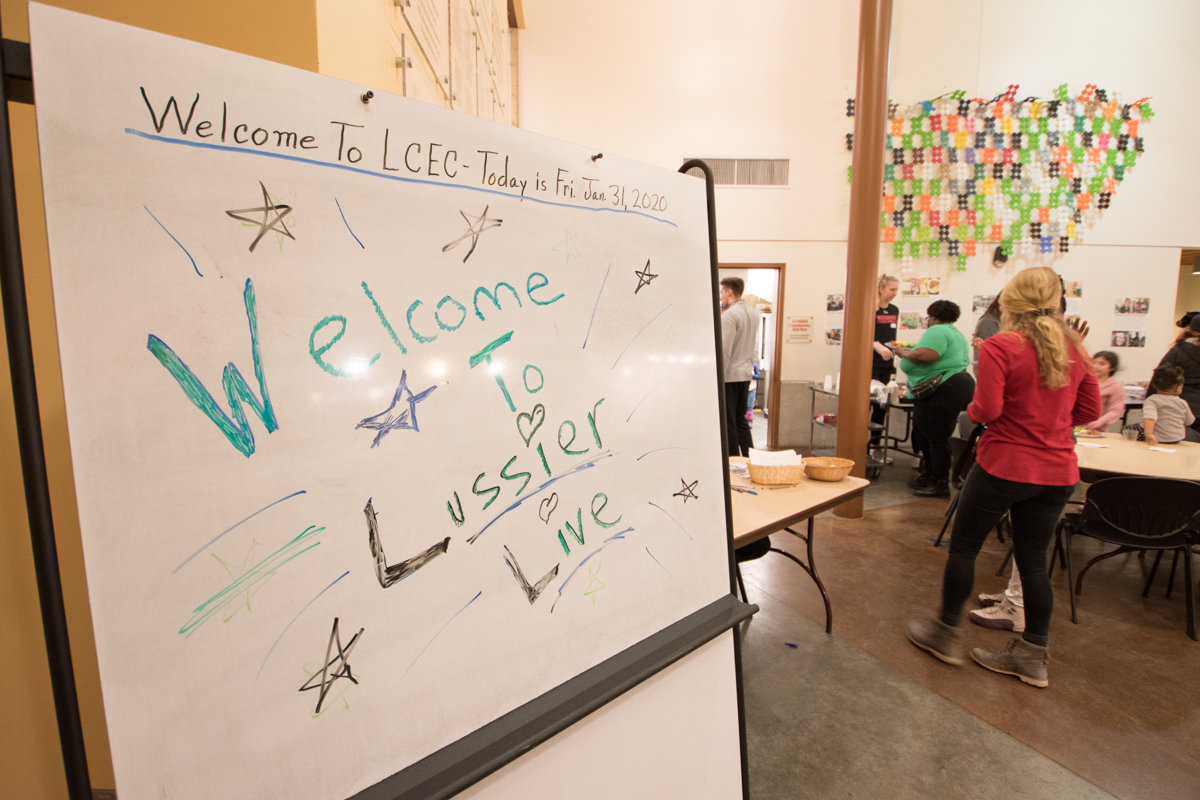
For example, January was Lussier Live featuring a talent show and musical performances; February is African American Excellence Celebration; March is family bingo and games night; April is Gallery Night where the whole place is turned into a community art gallery and performance space that usually draws 150 people; May will feature Aldo Leopold and other organizations for a get outdoors focus; in summer we tend to do the meals outside for a health and wellness barbecue; and October is Tricky Science night, the Center transforms with Halloween decorations and local volunteers bring in creepy crawlies, science activities and demos on how optical illusions work. Even when it’s not April, there’s lots of art on the walls at the Center, because we had a focus since the beginning of trying to create ways for people to make their mark on the building so it feels like theirs.
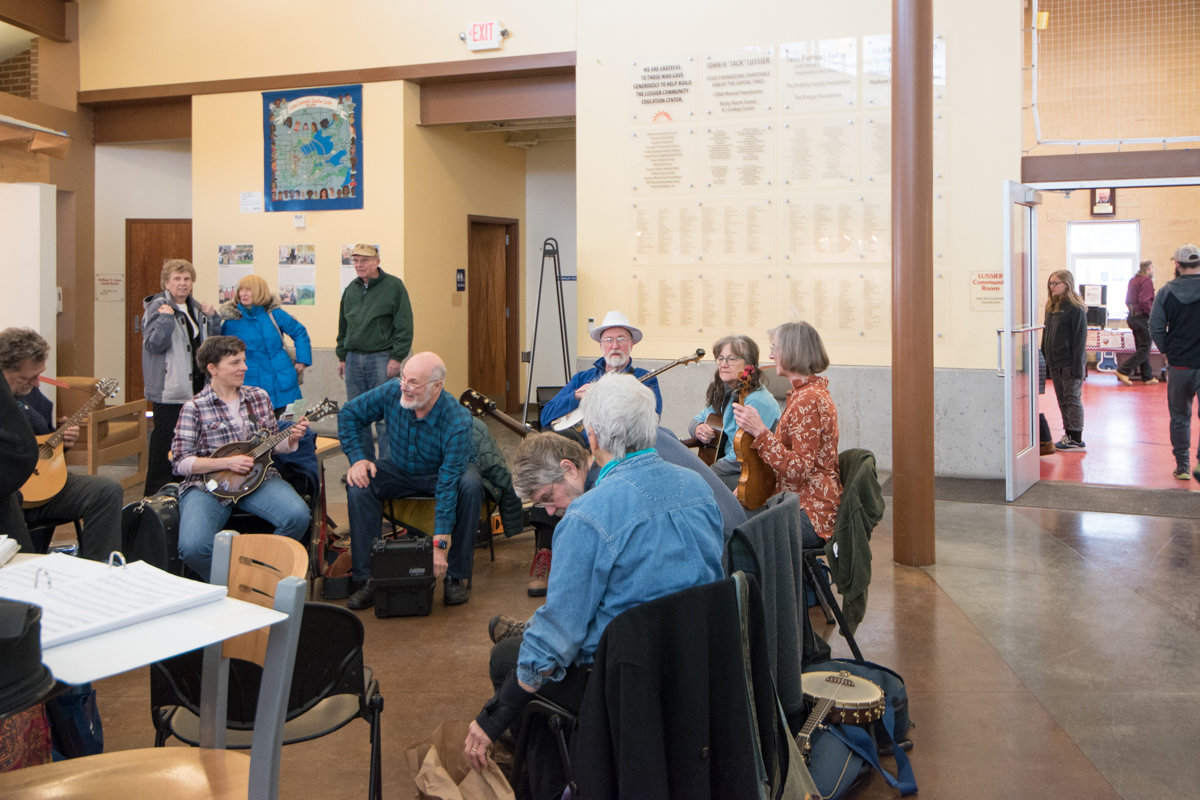
What are the rooms used for during the day when children are at school?
Our fourth- and fifth-grade classroom, for example, also gets used by the Food From Friends food gleaners program, so folks can come get a box or bag of fresh produce, bread, and other perishable foods every Friday from 11:30 a.m. to 12:30 p.m. That same room is also used by the Literacy Network for one-on-one English language tutoring. And on Tuesday mornings, we have six young adults with disabilities on our payroll (and who the school district provides the job coaching, meal planning, and shopping for) who cater breakfast for about 25-35 Optimists for the club’s weekly meetings in that room.
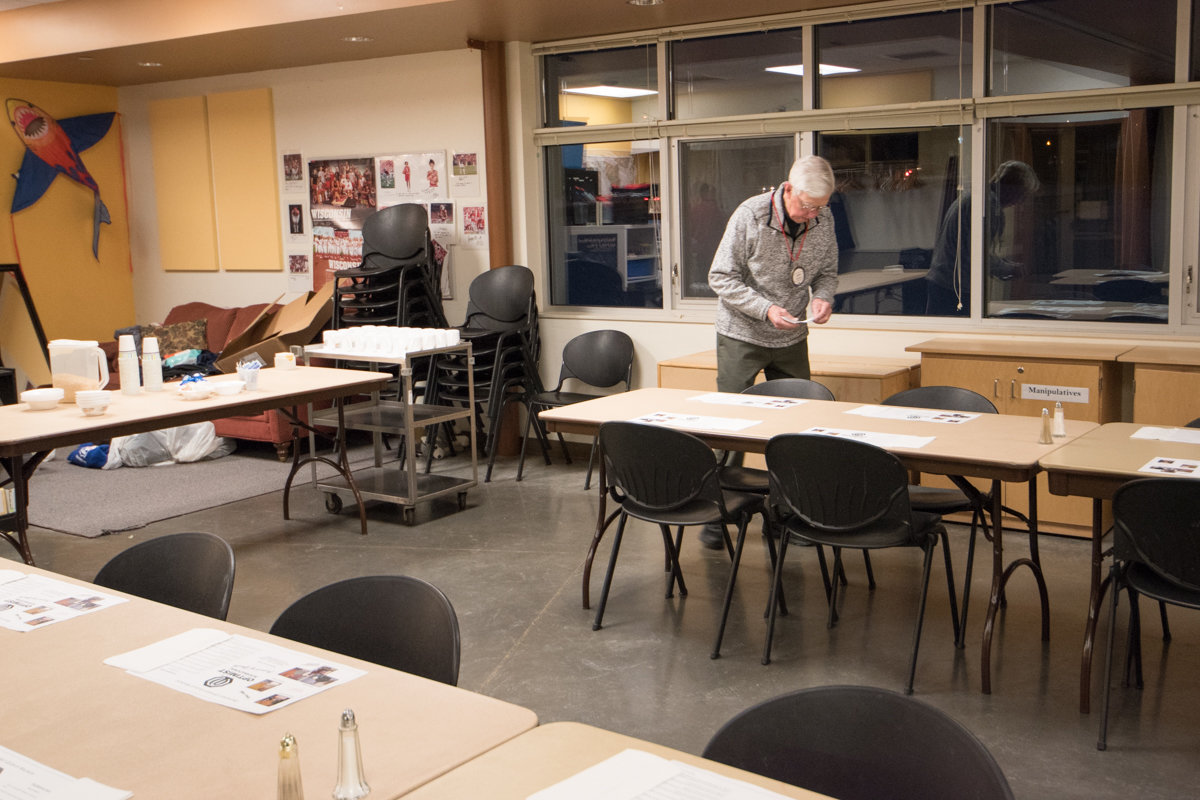
That process helped us get our restaurant license, and then Second Harvest came to us and asked us to be a Kids Cafe site, which is their nutrition program for low-income kids, and we were able to expand it to offer hot meals three afternoons a week at the Center during the school year and lunches four days a week during the summer for about 80-100 K-12 kids. And now, the Memorial High School 18-21 program actually stages here in the mornings; so rather than the young people going to school, they come and meet here, they might do a life-skills class, and then they go off to their workplace, so this has become kind of a home-base. So it’s a vocational program, nutrition program, and it’s been successful on a lot of levels. It’s brought good food to a bunch of kids, and most of the young people who have come through here have been able to get other jobs as well. That idea of something where you have different folks coming with different needs, and how do you put those things together in a way that builds something is pretty cool.
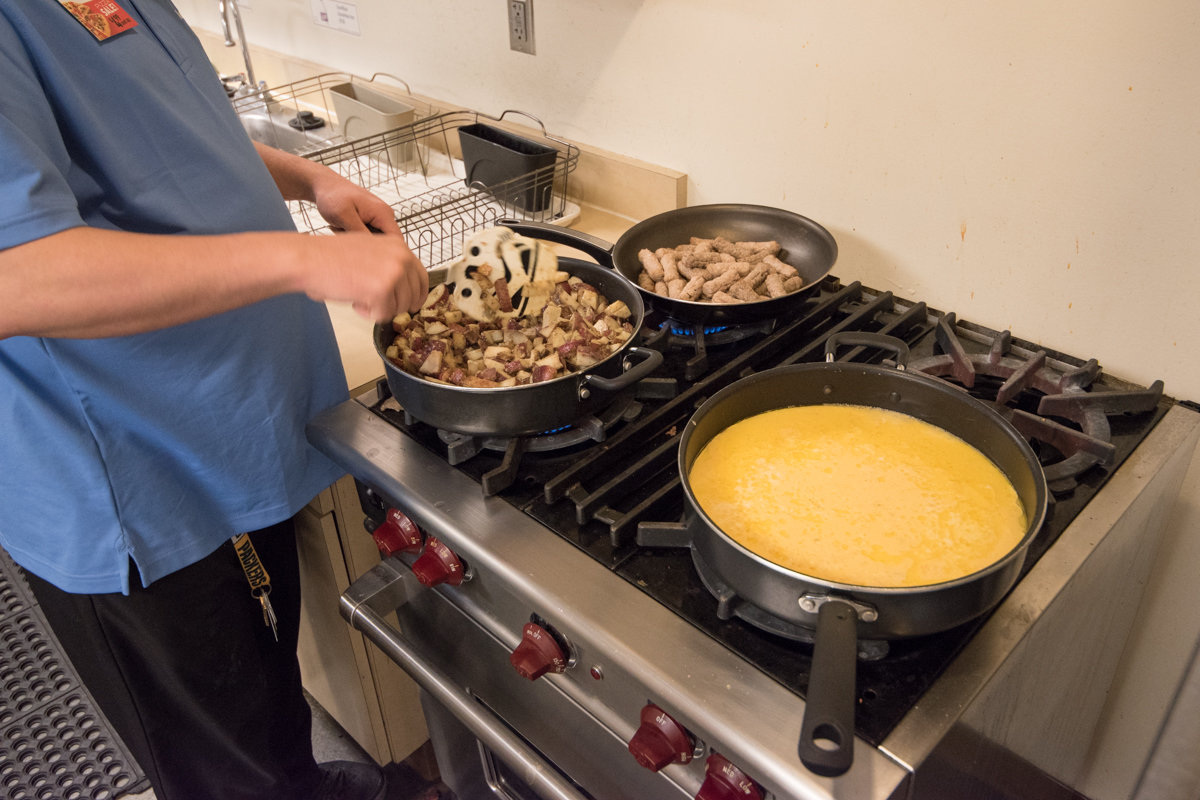
What other opportunities are available for high school students?
Through our Buffett Scholars Program, we identify through a nomination and selection process four rising 9th graders who have faced barriers, have shown the potential to go to college, and have an interest in giving back to their community. We support them through their high school career by connecting them with a staff person, checking in with them to make sure they’re getting the support they need, giving them access to up to $500 per year for any kind of expenses that would help build their college application, such as extracurricular activities or tutoring, and then awarding them a $1,000 scholarship in their first year post high school.
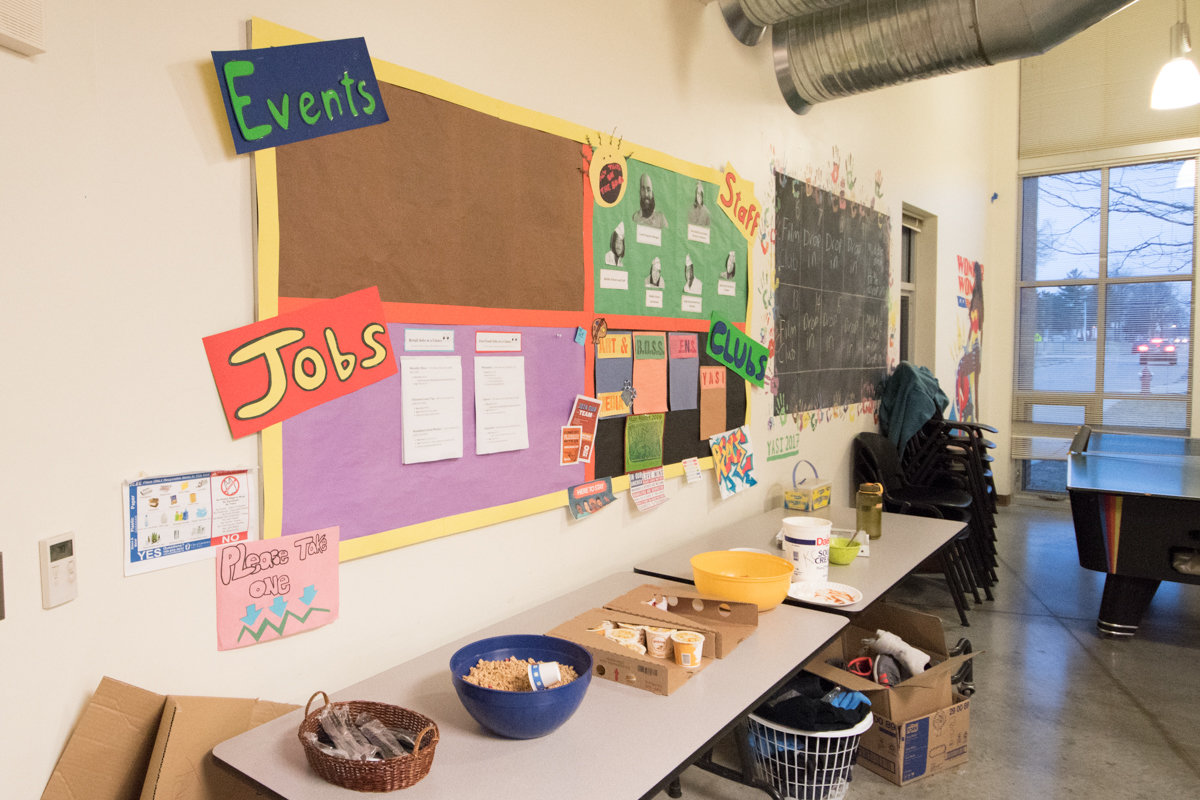
There is also a high school summer program called Youth Action Summer Interns (YASI), which is the youth leadership, social justice, and organizing training program. During the school year the group meets about weekly and they participate in protests and actions they care about or go to youth conferences. During the summer we have an eight-week 25 hour/week intensive youth leadership organizing training program, based on a model of three overlapping circles: identity and values (who am I, what do I believe in, and what do I stand for), social issues (what’s going on in the world and how did it get that way), power and leadership (what power do I have to change it and how do I put my power together with other people’s power to make a difference). They do workshops and research social issues, go on field trips, and take part in a youth delegation in D.C. to meet with grassroots groups and legislators, go on college visits, and visit the National Museum of African American History and Culture.
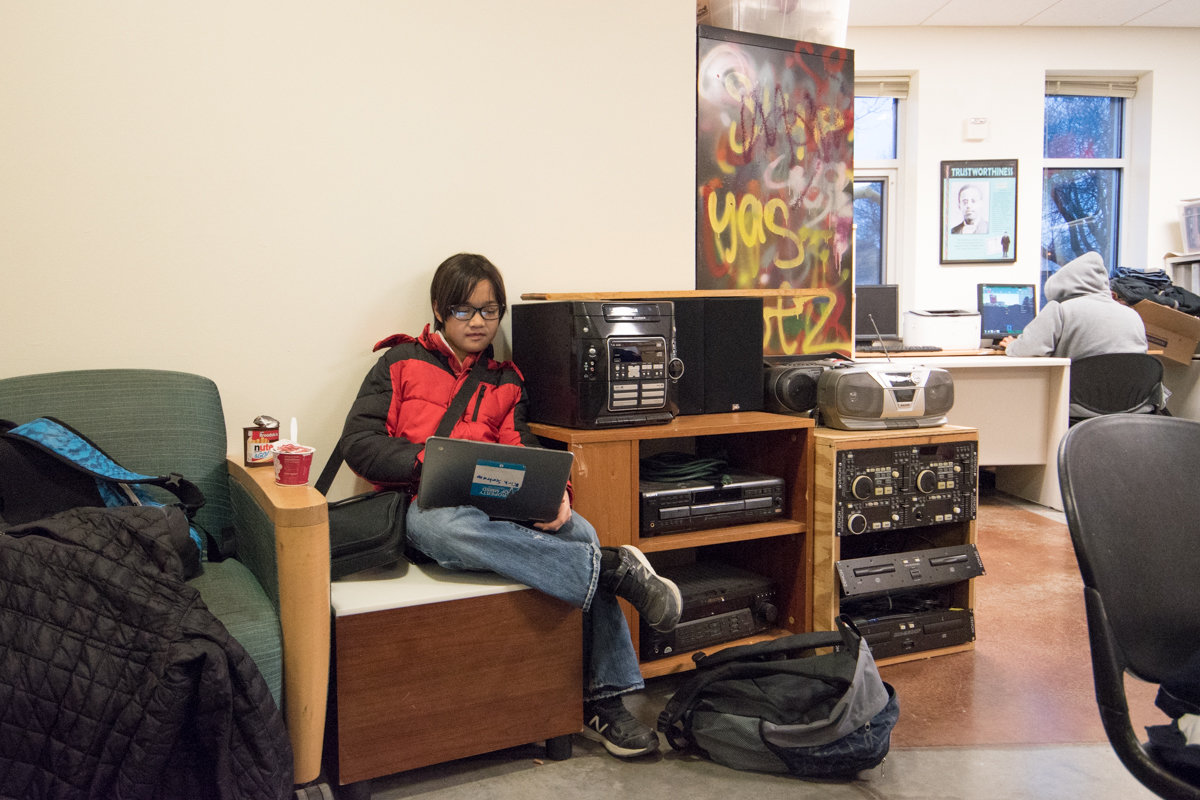
What other career and leadership training programs is LCEC involved with?
Our employment programs are small but they’re filling particular niches. One of the things we’ve done in partnership with the Goodman Community Center and the Kennedy Heights Neighborhood Center is start a training program to help neighborhood folks get their qualifications to work in licensed afterschool programs, because they need to have certain coursework in order to be allowed by the state to work here. We also have a job clinic here every Monday with volunteers who help folks with resumes, cover letters, applications, and their job search. DANEnet, a nonprofit IT organization, also offers a five or six session basic computing class, and people who finish get a free or $50 refurbished computer. We also provide work placements here for folks who are going through the Department of Vocational Rehabilitation, Greater Wisconsin Agency on Aging Resources, and the Wisconsin Works (W-2) program. So for folks who are trying to get back into the workforce after a disability or injury, who have been displaced, or face a variety of different situations, we’ll support them with work experience (often in the office, front reception, or custodial) and they’re getting paid through their agency.
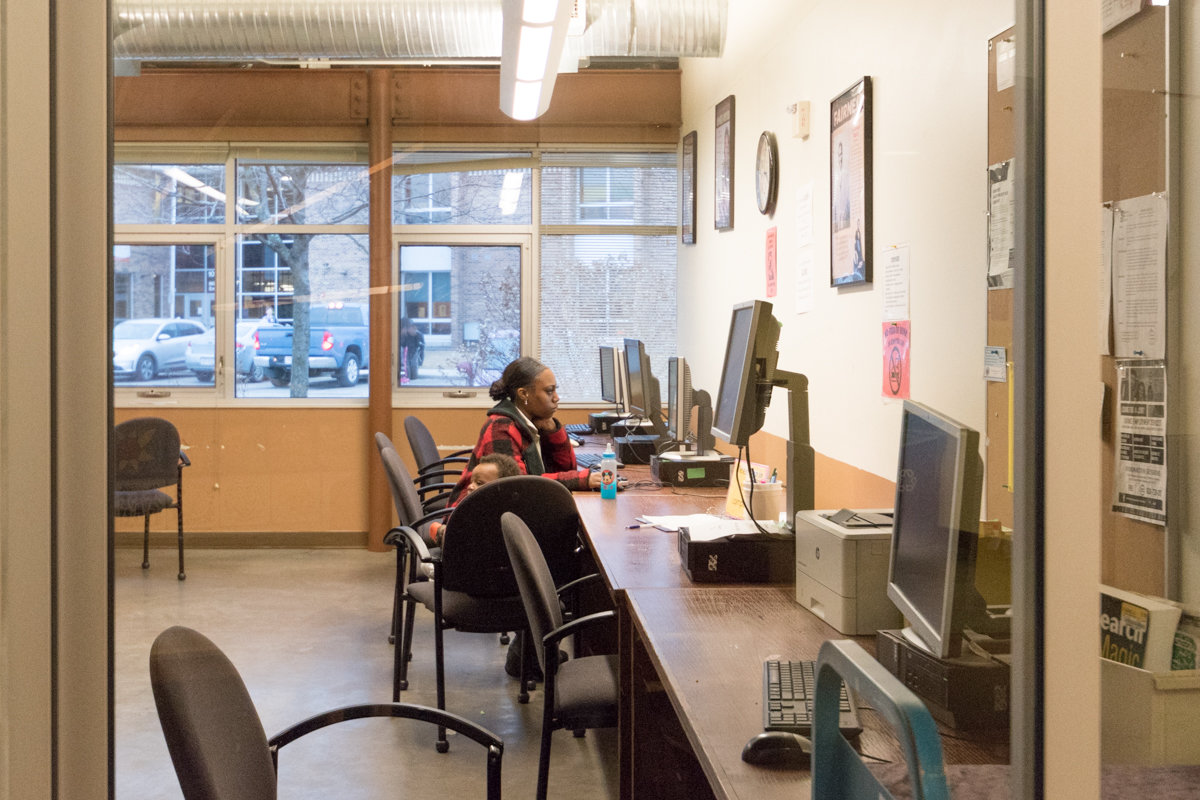
More on the leadership end of things, we also offer a Neighborhood Organizing Institute to help a year-long cohort of about 9-14 folks develop organizing skills, involve others, and connect them to each other so they can be more powerful together. There is a series of monthly sessions around understanding power (your own power, how do you build it, how do you use it) and how to work with city government and school district government, as well as offering a small stipend for trainings they attend and some seed money to do their project.
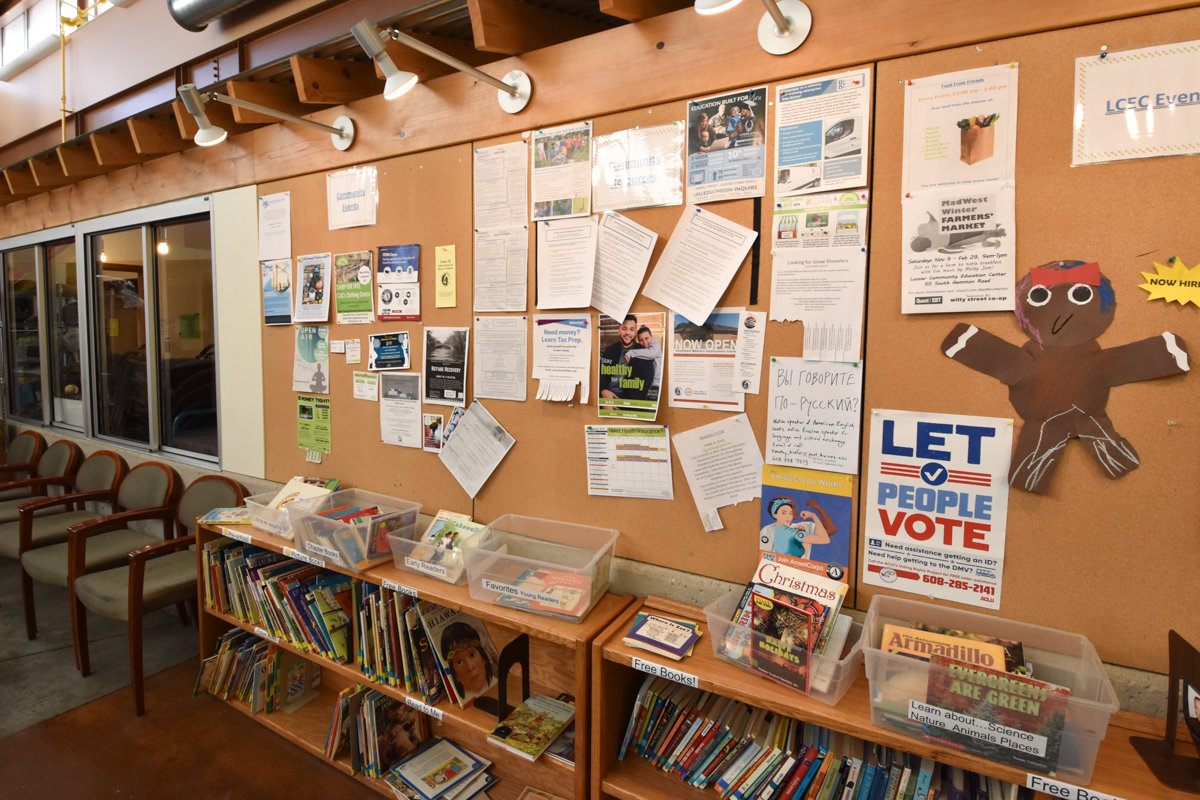
LCEC values your support, whether that comes in the form of a donation to fund programs, a nonperishable food item to stock the shelves, or time as a reading buddy volunteer. To learn more, check out this video about the Center, visit lcecmadison.org or stop by the Center at 55 S. Gammon Rd.
